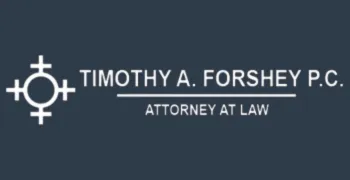An NFA (“National Firearms Act”) Gun Trust is a trust is established for the sole purpose of acquiring and owning Title II (commonly incorrectly referred to as “Class 3”) firearms in a manner that eliminates legal risks and consequences that are otherwise present.

What is an NFA Trust?
An NFA Trust is a legal entity created to acquire and own Title II firearms (those regulated under the National Firearms Act, including such examples as suppressors, short-barreled rifles, and machine guns).
Why should I use an NFA Trust instead of individual ownership?
An NFA Trust allows multiple trustees to legally possess and use NFA items, simplifies the transfer of NFA items after your death, and can help avoid certain legal complications during the application process.
: I understand that I can get the same benefits for Title II firearms acquisition from a corporation as a trust. Is that true?
Yes—corporate ownership bestows the same benefits (eliminates accidental felonies and eliminates transfer issues due to death among the corporate officers) as a trust, but corporate formation is far more expensive than the creation of a trust, requires annual documentation creation to satisfy the corporation commission, requires the use of an expensive statutory agent, and is a matter of public record, meaning the corporate assets—your guns--are discoverable in any litigation. Trusts are cheaper to establish and are “maintenance free” following creation. Our trust will allow you to add as many items as you can afford without any trust modification. The trust is amendable if your address, marital status, etc. should change. Best of all, the trust is completely private. There is no way for internet snoopers to detect that you are using a trust—unlike corporate ownership.
Who can be a trustee in an NFA Trust?
Trustees can be any responsible adult (over 21 y.o.a.) you choose, such as family members or close friends. They must be legally allowed to possess firearms under federal and state laws.
What is the difference between a trustee and a beneficiary in an NFA Trust?
Trustees have control over the NFA items and can legally possess them. Beneficiaries, on the other hand, are designated to receive the items upon your death but cannot possess or use the items while the trust is active. Beneficiaries are usually, simply, underage at the time the trust is established.
Do I need to submit fingerprints and photos for an NFA Trust?
Yes, under current ATF regulations, all responsible persons listed in the trust must submit fingerprints and photos with the ATF Form 4 application.
Can I add or remove trustees from my NFA Trust?
Yes, our NFA trusts are revocable, which means you can generally add or remove trustees from the trust via a simple amendment--but you should consult with an attorney to ensure that changes are made properly and comply with the terms of the trust and, most importantly, ever-changing federal laws and regulations.
How do I purchase NFA items with an NFA Trust?
The process involves selecting the item, having your trust documents in order, filling out the ATF Form 4 (or, if you are creating a new firearm, a Form 1) with the trust information, submitting the required documents, and waiting for ATF approval.
Can I use an NFA Trust to own non-NFA firearms?
Yes, an NFA Trust can hold non-NFA firearms, but it is generally recommended to keep NFA and non-NFA firearms separate for simplicity and legal clarity. There is no real advantage, in most states, in placing Title I firearms into a trust.
What happens to the NFA items in the trust if I want to dissolve it?
Dissolving the trust requires legally transferring the NFA items to the rightful owners or beneficiaries according to the terms of the trust. This process must comply with all ATF regulations and may involve additional paperwork—and you then lose the considerable benefits of the trust you established in the first place.
How does an NFA Trust simplify the transfer of NFA items after my death?
The trust continues to exist after your death, allowing the trustees to continue to own and manage the NFA items according to the terms of the trust, thereby avoiding the need for probate and vastly simplifying the transfer process

